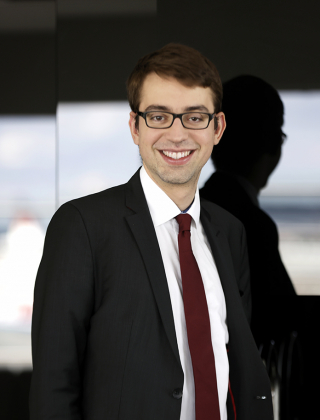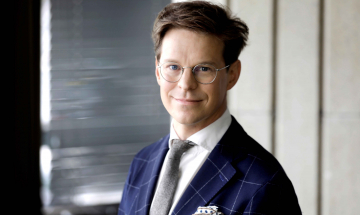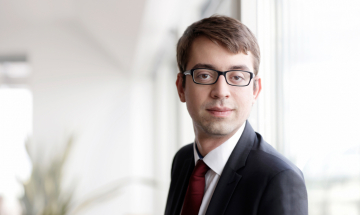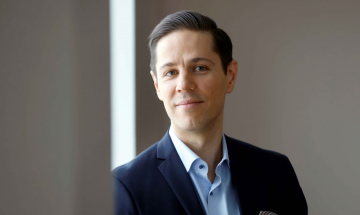
Ursula von der Leyen – The Greatest Hits (So Far?)
European Commission President Ursula von der Leyen (EPP) is finding herself at a delicate juncture of her Presidency: she and her team of Commissioners still have an ambitious legislative programme to complete before EU citizens go to the polls to vote for a new European Parliament in 2024. However, while the elections themselves only take place in June, the EU law-making apparatus is expected to already come to a halt earlier in the Spring – giving the von der Leyen Commission roughly six months to wrap up any outstanding projects.
The time pressure has been compounded by untimely personnel changes: in Margrethe Vestager (ALDE) and Frans Timmermans (PES), two of her most senior Commissioners recently left the Berlaymont in search of new job opportunities. Finnish Commissioner Jutta Urpilainen (PES) is also likely to step down to stand in Finland’s presidential election. This exodus has added to impressions that the sun is slowly setting on this Commission – and brought the question of Ursula von der Leyen’s own future to the fore: will she be available for a second term at the helm of the EU’s executive? And what would the answer to this question imply for the work of her Commission as it approaches the end of its mandate?
Will von der Leyen be available for a second term at the helm of the EU’s executive?
The suspense before this year’s edition of the annual State of the European Union (SOTEU) Address was thus rather high – and further heightened by the fact that it was a moment without precedent: both José Manuel Durão Barroso (EPP) and Jean-Claude Juncker (EPP) were expected to retire from the EU top job ahead of their last SOTEU speeches. Von der Leyen was thus the first ever Commission President who could use the lectern in Strasbourg as a testing ground for re-election messaging. Going into this 13 September, von der Leyen was, therefore, expected to offer a “Best Of” of her term – and the odd hint about her career plans: would she channel Frank Sinatra or Freddie Mercury, declaring “I Did It My Way” or asking MEPs “Don’t Stop Me Now”? Arguably, her speech ended up being a bit of a remix of both.
Striking a unifying tone, von der Leyen very carefully pitched messages intended to mollify her key constituencies – especially her own centre-right European People’s Party (EPP) that had often found her policies to be overly left-leaning for their taste. Much of her speech thus highlighted the importance of boosting the EU’s competitiveness by relieving the bureaucratic burden shouldered by SMEs and reconciling green policies with the needs of farmers and industry.
The few and largely “soft” policy measures that she put forward were predominantly dedicated towards this goal: symptomatic of this was her flagship announcement of investigating Chinese electric vehicle manufacturers for infringing fair competition rules and her emphasis on an upcoming Commission initiative to cut reporting requirements for companies by 25 per cent. The fact that she chose to stress the latter while omitting her Commission’s intention to soon put forward plans for a 2040 EU climate target again suggests that she did not want to needlessly provoke her Christian democratic allies.
It would be misguided, however, to consider her speech a sole pitch to the European centre-right. Von der Leyen also notably reached out to the centre-left by pledging greater EU action on social policy and committing herself to the Green Deal as a matter of principle. Her initiative to convene a Social Partner Summit in Val Duchesse (Belgium) in 2024 was a particularly significant act in this regard: in 1985, her social democratic predecessor Jacques Delors (PES) had convened a conference that sparked the establishment of the European Social Dialogue at the same place. Taken together, this appeared to be a concerted attempt by von der Leyen to keep the coalition that lifted her into office in 2019 together.
The impression that von der Leyen was not merely reflecting on years past but looking to the future was cemented by the theme of her speech: that Europe rose to its historical responsibility under her Presidency and must continue to do so. While remaining tight-lipped about new legislative ambitions, the Commission President offered a clear idea of the strategic priorities for the EU in the years to come – and they remarkably mirrored those that underpinned her pitch for the Berlaymont four years ago.
She thus harked back routinely to her vision to establish a “Geopolitical Union”, arguably one of her political ambitions where the most progress remains to be made, especially in the field of enlargement. Her call for the EU to act as the spearhead of a global effort to regulate Artificial Intelligence, following her Commission’s own action at European level, likewise fit into this sense of mission. Together, it could be understood as a subtle message that von der Leyen’s job has not yet fully been done. This was particularly underlined by the last line of her speech: “Once again – this is Europe's moment to answer the call of history.”
Von der Leyen promoted ground-breaking EU legislation on digitalisation and climate action.
The von der Leyen Presidency will certainly be one for the history books – the first woman to ever head the European Commission, she promoted ground-breaking EU legislation on digitalisation and climate action. She navigated the EU through the worst global pandemic in a century, presiding in this course over the Union’s “Hamiltonian Moment” through the creation of its first common debt instrument and the nascent rise of a Health Union.
When Russia attacked Ukraine and destroyed the European post-communist security order, von der Leyen seized the initiative to reposition the EU as a more geopolitical player by taking a leading role in supporting Ukraine in the face of aggression – including through enabling weapons’ deliveries, hitherto a taboo for the EU. It now remains to be seen if another chapter will be added to this story.
For now, the decision lies in no small part with the Commission President herself. Her appearance in Strasbourg suggests that she is unlikely to make a final announcement very soon: were she to stand down, it would cement impressions that she presided over a “lame duck” Commission bereft of the political vigour needed to finish what it started. Were she to declare her candidacy too early, von der Leyen would risk her remaining (and future) policy initiatives falling prey to electioneering among MEPs. It was, therefore, in her interest to stay vague and ensure that she could keep the legislative engine running as long as possible into 2024.
Nevertheless, there were few doubts over the general direction of travel after this 13 September: with this SOTEU, von der Leyen clearly intended to keep the door open for a comeback, rather than stage the first gig of a farewell tour.
Further information:
Henrique Laitenberger, Head of EU Affairs, tel. +358 (0)40 353 1326, henrique.laitenberger@teknologiateollisuus.fi, Twitter: @ToEnLaiten


